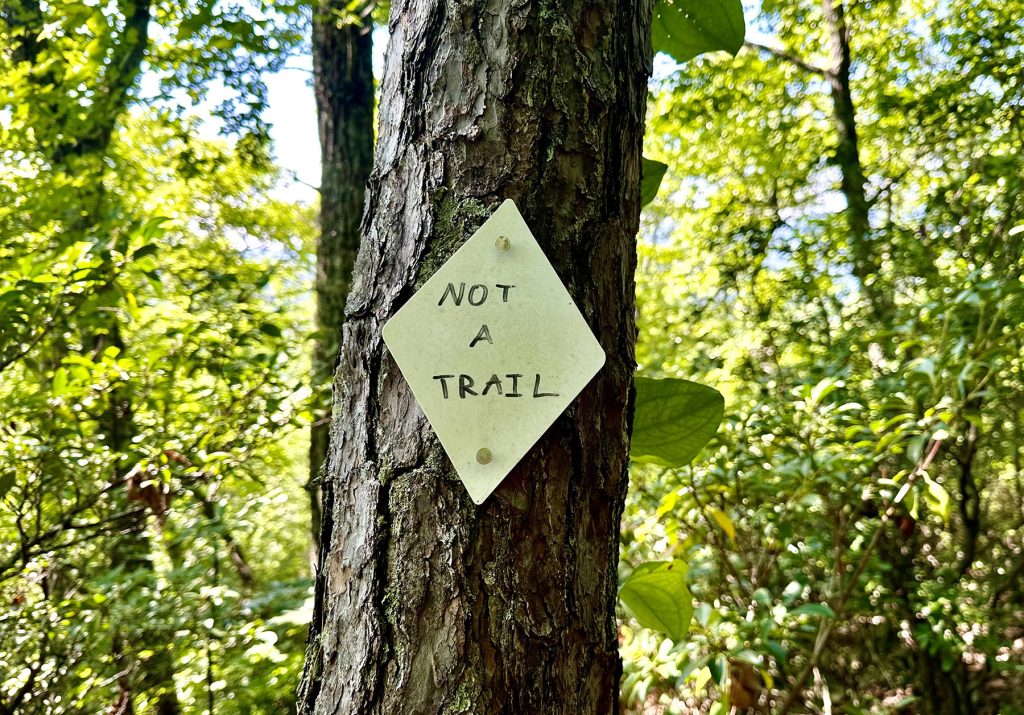
Anyone else tired of being told “what the Bible says” by those who ignore what Jesus said?
It seems to be a daily experience.
Sadly, the roots of misguided Christianity grow deep into the faith tradition named after an often ignored or misrepresented figure.
Earlier institutionalization of the Christian faith tended to focus more on Jesus’ birth, death, resurrection and expected return than his life, teachings and clear calling to follow in his ways.
Historic church creeds are good examples. So are some hymns, confessions and covenants.
Downplaying the primary call to follow Jesus has allowed for redefining Christianity as affirming a series of beliefs — often shaped into political ideologies at odds with Jesus’ teachings of inclusion, truth, and compassion over fear.
The continuing redefinition of Christianity apart from following Jesus got a big boost in the late 1970s from the original Jerry Falwell and other religious fundamentalists who took a sharp turn toward seeking political notoriety and the kind of governmental power that Jesus rejected.
Randall Balmer of Dartmouth College, a historian of religion, has well documented (https://www.politico.com/news/magazine/2022/05/10/abortion-history-right-white-evangelical-1970s-00031480 how these politicized preachers rallied at the time in defense of racial discrimination in education.
Knowing overt racism might not sell widely enough, they focused on other freedom-restricting issues — branding their political efforts with the misnomers “pro-life” and “pro-family.”
With gullibility flowing deep and wide, deep and wide, it didn’t take long before many professing Christians began to define their faith largely in terms of political opposition to abortion and equal rights for LGBTQ persons.
In time, as we’ve seen more recently, anything else — no matter how demeaning, dishonest and downright disgusting — was rationalized as acceptable to these professing Christians if the means produced the results of those particular political ends.
It mattered (or matters) not if one’s professions, priorities and practices align with Jesus.
These rigid political positions became tests of religious orthodoxy — with any concerns, complexities or expressions of grace dismissed as humanism, liberalism or socialism (among other isms).
Deeming something “conservative” became equated with valid Christianity.
Never mind that when facing previous social issues of concern — including basic human equality — these same religious advocates for strict conservatism (or their forebearers) were not only wrong but the biggest obstacles to justice.
Throughout our nation’s history those who self-identify as the most conservative Christians have consistently been the caboose rather than the engine of needed social change. Why should we expect anything different from them now?
Therefore, these current and continuing expressions of fear-based exclusivity and attempts to use foul means to enforce one’s hostile religious beliefs on all others is sad but unsurprising.
So is the ongoing shift by many Americanized Christians away from following Jesus to believing a set of precepts that largely serve those who created and elevated them as ultimate truth.
The image used with this writing, which I encountered recently in the North Carolina mountains, stirred my mind. I was reminded of an article in the Atlanta Journal-Constitution many years ago.
It was about getting lost — and how easily persons can find themselves in places of directional uncertainty.
“The process of becoming lost seems complex and lengthy on the surface, but it is quite often nothing of the sort,” said an experienced wilderness rescuer.
“Two steps off the trail for whatever reason…,” he added, “and you can be as lost as if somebody had dropped you 50 miles from the nearest building.”
One could spend a lot of time contemplating how and why so much of institutionalized Christianity — including the Americanized version many of us know so well — vacated the trail that leads behind Jesus’ footprints.
There are some hints: institutional success, personal power, societal change, fear and more fear, to name a few.
I was intrigued by the three-prong advice given by the rescuer to anyone who becomes physically lost.
First, he said to look for something familiar. Perhaps a broken limb or odd rock or tree that might enable retracing one’s steps.
Second, he advised getting out in the open — if possible — in order to be seen from above.
Third, and finally, if all else fails he suggested staying put. Don’t make a bad situation worse by continuing to go in the wrong direction.
You smart-minded people can apply those principles to the current state of misguided Christianity — that keeps going down trails other than the one marked by Jesus’ call for all who would be his disciples.
Look for the blazes on the trees that lead to loving God with all one’s being and our broadly defined neighbors as ourselves. The trail is narrow, but it leads to life — so said the One who seeks to be our guide.
